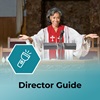Leading a successful small group is a lot like sailing a ship at sea. Your job as the captain is to navigate your fellowship through a variety of obstacles and hazards, staying on course to reach your destination. An effective captain knows the right questions to ask.
One of the questions often heard in small groups is, "What are we going to study next?" That question shows a lack of direction and a lack of real leadership. Rather than sailing toward a destination, many small groups are like a sailboat at sea being "tossed back and forth by the waves, and blown here and there by every wind of teaching" (Ephesians 4:14).
As you lead your group, you need to know the answers to at least five important questions. These questions provide you with five principles for selecting the next study for your group.
Question: Why does the group exist?
Principle: The main purpose of every group should flow out of the mission of the church.
The mission of the church where I lead is this: "To team with God in turning unchurched people into fully devoted followers of Jesus Christ." Your church's mission statement is probably similar in that it relates to carrying out the commission Jesus gave his church (Matthew 28:19–20).
Once you have clarified your group's mission, be sure to write it down. Then answer the question, "What can we study next that will help us carry out that mission? What should we study that will help us make disciples or make fully devoted followers of Jesus?"
Question: Who is in my group?
Principle: The small-group leader's main function is that of a shepherd who knows his or her sheep.
Here are a few questions a good shepherd will ask:
- Where are my people spiritually? As a shepherd, you must know where people are individually and where the group is as a whole. Are participants newborns in the faith, like spiritual teenagers, or are they mature adults? (See passages such as 1 John 1:12–14; 1 Peter 2:2; 1 Corinthians 3:1–3; and Hebrews 5:11–6:1 for discussions on how to shepherd people at different spiritual levels.)
- In what areas do they need to grow? Do your group members need more knowledge about beliefs and doctrine? Do they need to learn the disciplines or practices of the Christian life? Do they need to understand the virtues of the Christian life or the fruit of the Spirit? There are several effective tools you can use in your group to assess their spiritual maturity in these different core competencies.
- How do they learn best? Do participants in your group tend to learn best through application-oriented discussion? Do they learn best by doing, hearing, or reading—or is it a combination? Would individuals learn better in a group, or would some one-on-one mentoring be helpful?
Good shepherd-leaders will ask these questions and more. But mainly they are concerned for the sheep. Like the Good Shepherd, they know their sheep by name and are intimately involved in their lives.
Question: What do you believe?
Principle: Teach what is in accord with sound doctrine (Titus 2:1).
As you choose curriculum, be sure it leads you to study God's Word, not just someone's opinions—even opinions that relate to Scripture. Satan is sneaky. He can, without a group even realizing it, knock you off track through innocent-sounding questions. Be careful! A writer can easily move a group to consider his opinions about a doctrinal stance by asking a series of questions that lead the conversation in a certain direction.
Be sure to examine a potential Bible study closely before using it in your group. If you don't feel confident or competent to examine a curriculum piece for doctrinal purity, ask a church leader to do so first. Some churches have an "approved" list of studies that have already been checked out. Know what your church teaches on certain "gray areas" of doctrinal issues. Teach only what is in accordance with what your church leadership has established and, of course, what is taught in Scripture.
Question: What are your group's capabilities and limitations?
Principle: A group agreement can help establish some basic ground rules for Bible study selection.
Here are some things to keep in mind as you think about what your group is capable of, and what it needs:
- Depth of studies. Are the studies too deep? Not deep enough? Just right for your group?
- Homework. Has your group agreed to do "homework" between studies? Doing some work between studies can be a good approach for deep discipleship, but it also can tend to close a group, since no one wants to come to a group and be the only ones not to have the assignment done. If you do choose to use studies that include some homework, how much is appropriate? Talk about these questions before looking for a study.
- Length of study. How many weeks will the study take? Know the attention span of your group! Most groups get antsy with more than a six or seven week study. The old standby of 13 week studies just does not seem to work anymore. Shorter always seems better, but discuss this with your group first.
- Length of time in each study. How much time will you spend in Bible study during each session? Are there too many questions for the time allotted by the group? Will projects take too long to complete?
- Good questions. Will the questions in the study lead to discussion and lively interaction, or do the questions sound like a pop quiz looking for one-sentence answers? Also consider how many questions are enough for a good discussion. Some Bible studies include 15 or more questions. That may be way too many for most groups, unless all you are getting is one person answering each question. But that is not a discussion! Sometimes 2 or 3 good application-oriented questions are enough for a stimulating, interactive, life-changing discussion around God's Word.
- Open or closed. A long study or series may inadvertently close your group, since new people feel awkward jumping into the middle of a study—they feel behind even before they start! Do the sessions of a potential Bible study build upon each other, or are they somewhat independent so that new people can easily join at anytime?
- Cost. This may be the biggie! Discuss with your group members how much they want to shell out for Bible study guides. The price of some curriculum choices may be prohibitive for some participant's budgets. Be sensitive to this. Be a good steward of the resources God has provided.
Question: What are your own capabilities and limitations?
Principle: Know yourself. Don't get in over your head.
Here are a few things to think about when it comes to evaluating your own limits as a leader.
- Functionality. How easy is the study to use? Does it include everything you need? Does it have a leader's guide in the back and other leader helps included? Is it organized so that it is easy to follow? Does it include suggested times for sections and activities? Does it provide options so you can make choices based on your leadership style and your group's personality and interests?
- Prep time. How long will it take to prepare for meetings? Do you have to spend an inordinate amount of time finding materials for the study, or is everything self-contained? Will you have to spend a lot of time trimming the study down to fit your group's schedule? Will you have to do a lot of work making the studies fit your group?
- Cost. How much is this going to set you back personally? Will you have to purchase a separate, and more expensive, leader's guide?
- Passion. Do you like the study? Can you get excited about it each week? If you are not interested in the subject or the style of the study yourself, your group will quickly catch your lack of enthusiasm, dooming the study. The answer to this one may depend on the answers to numbers one and two above. If you are carrying out the mission of your group and you know the study will help the sheep grow spiritually, then you, as the group leader, should have no problem getting excited about leading the study.
Answer all five of these questions and follow these principles, and you can navigate the sea of curriculum choices successfully. Better yet, you can lead your group to the destination God desires for you and never again hear someone in your group ask, "So … what do you think we should study next?"
—Michael Mack; copyright © 2003 Christianity Today. Originally appeared on Smallgroups.com.









